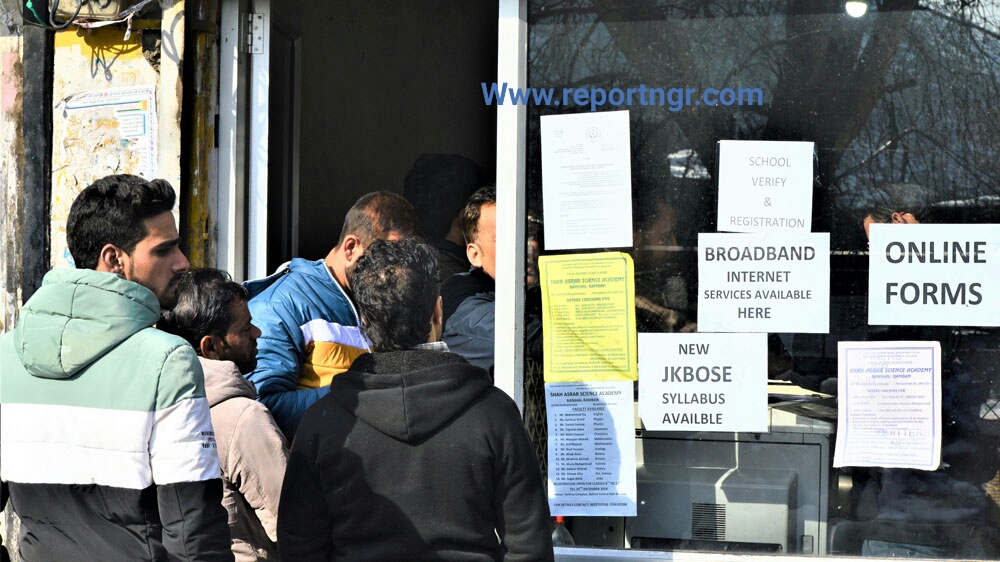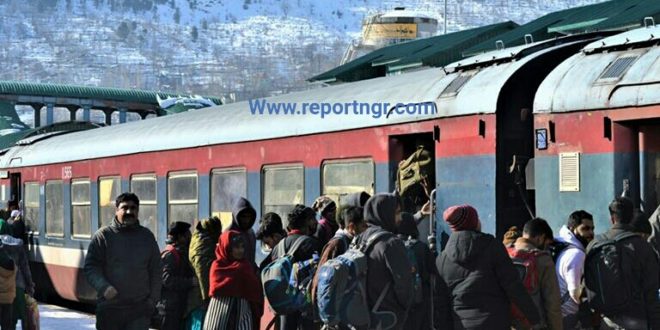“Internet Express” is helping Kashmiris to go online. Indian-administered Kashmir has been without broadband and mobile data services since August 5 2018.
That was when the Indian government revoked the special status of its only Muslim-majority region. Splitting it into two federally administered territories.
Meanwhile, on daily basis, thousands of Kashmiris travel by trains to towns where government-run internet kiosks offer them web access.

Stepping off the crammed train amid harsh snow and cold, Abrar Ahmad is one of the passengers that make a beeline for cafes.
Kashamaris go to the “Internet Express” by in the town of Banihal, about 100km (approximately 60 miles) south of the main city of Srinagar.
Read also: death sentence for pakistani former president cancelled
At the cafes, they pay up to 300 rupees ($4.20) for hourlong broadband access.
“I couldn’t have afforded to miss this opportunity,” Ahmad told the Thomson Reuters Foundation after filling out an online job application at a teeming internet cafe. Where dozens of others hit by the 162-day internet shutdown queued behind him.
“There is no one else in my family to take care of my three younger siblings and me,” he said, adding that his father, a mason, lost his leg in a road accident last year.
However, despite a United Nations declaration in 2016 that the internet is a human right, shutdowns have risen in recent years.
Governments from the Philippines to Yemen said shut downs were necessary for public safety and national security.
Nevertheless, Kashmir is claimed in full by both India and Pakistan. They have gone to war twice over it. Each rules parts of the scenic Himalayan region.
Notwithstanding, India said it cut communications to prevent unrest in Kashmir.
In Kashmir, armed rebellion has killed more than 60,000 people since 1989.
The lockdown has cost Kashmir more than $2.4bn since August.
According to Abdul Majeed Mir, vice president of the Kashmir Chamber of Commerce and Industry, “Doing trade without the internet is unimaginable in the present-day world,”. An estimated 500,000 jobs have been lost.
“Irreversible damage has been caused to the economy.” Abdul Majeed Mir, vice president of the Kashmir Chamber of Commerce and Industry concluded.


![The General Overseer of Redeemed Christian Church Of God [RCCG], Pastor Enoch Adeboye has shared a profound message aimed at those ensnared in perpetual worry, highlighting how many continue to feel anxious even after their prayers are fulfilled.](https://www.reportngr.com/wp-content/uploads/2025/12/1765385213494-310x165.jpg)








